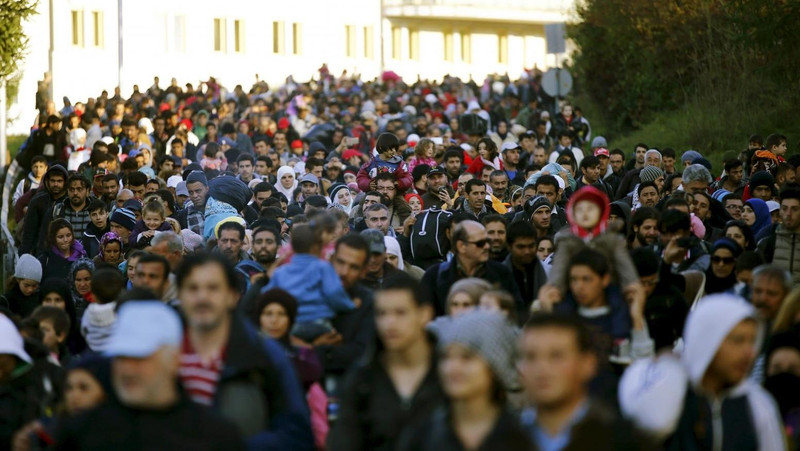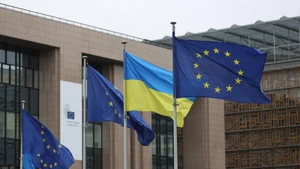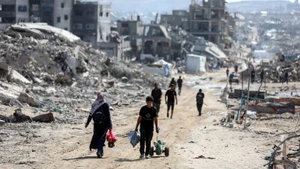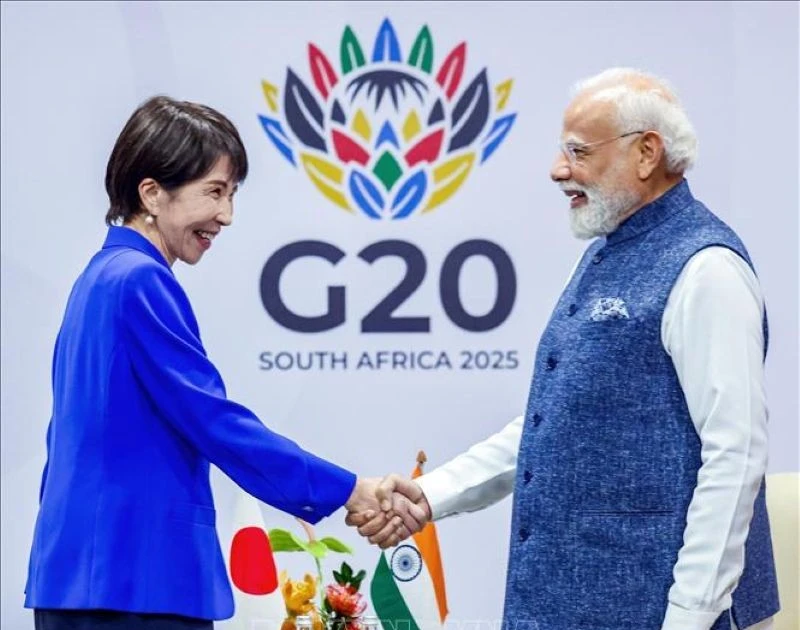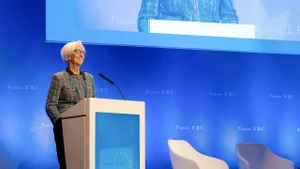There are many warnings that if the EU cannot protect its internal borders, there will be an end of the open-door policies towards refugees.
The warning delivered by German Foreign Ministry Spokesman Martin Schaefer came after Sweden and Denmark set up checkpoints at their border with Germany. At the same time, Sweden imposed new entry restrictions requiring travelers from Denmark entering the country to present photo identification. This is the first time in 50 years residents travelling between Sweden and Denmark must show a passport.
The moves by two Nordic neighbours also put an end to the open-door policies towards migrants, after they received about 160,000 refugees in 2015. Danish Prime Minister Lars Løkke Rasmussen warned that if the EU cannot protect its intra border, there will be more EU member states obliged to apply border controls like Denmark.
Meanwhile, Germany – the leading nation in the EU 'open arms' migrant policy – expressed disagreement with Sweden and Denmark’s decisions. The German Foreign Ministry stressed that freedom of movement is an important principle, and is one of the EU greatest achievements. The ministry said that the decisions from the two Nordic countries are making the bloc's passport-free Schengen zone face the risk of collapse.
However, in reality, the treaty’s fall is not a new story for the EU. The 20-year-old integration project had been seriously threatened by political pressure from the influx of 1.2 million migrants into the EU during 2015 and is also one of the most controversial topics that most recently created divisions within the bloc. European Commission President Jean-Claude Juncker warned of the fall of the Schengen zone with the deteriorating migrant crisis.
Late last year, Eurogroup President Jeroen Dijsselbloem told German business newspaper Handelsblatt about the possibility of the treaty falling apart as the uncontrolled migration crisis is creating too much risk for the continent. He argued that the EU cannot maintain the social welfare state in the long run if the influx of asylum seekers goes on like this. He proposed a so-called “mini-Schengen” in the core area of Europe, including the Netherlands, Germany, Sweden, Austria and Belgium. However, the German government immediately rejected the idea, confirming Berlin's view of the Schengen regional status quo and Germany’s support for better control of external EU borders.
The root cause for Sweden and Denmark breaking the bloc’s common disciplines is that by far, the EU has no fundamental solution to effectively prevent the wave of illegal immigration. Leaders of many countries have reluctantly raised immigration barriers to ensure national interests, as well as political and social stability.
In fact, the migration burden has been weighing on many European countries in recent years. Economically, social welfare budgets are impacted when they are expended on refugees.
Regarding security, receiving large numbers of migrants increases waves of nationalism, xenophobia.
Politically, the ruling coalitions in many European countries are under pressure from voters and opposition parties, as they end open policies to migrants. That Sweden and Denmark are erecting checkpoints at borders since the first days of new year shows a lack of EU consensus in sharing the common burden and controlling its external borders, while simultaneously reflecting its impasse in finding a solution to the immigration issue.
In 2015, the EU underwent many changes and Germany was at spearhead to lead the bloc out of split by deep disagreements concerning the economic downturn and migration crisis. The first signs in the new year showed that challenges to the bloc can even be greater than in the last year, demanding the leading countries of the old continent as well as the EU leaders to work harder to steer the alliance out of crisis.
